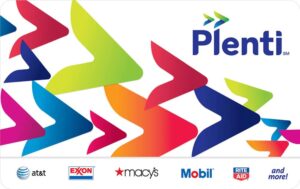 There are plenty (no pun intended) of reasons to question one of the long-cherished beliefs of loyalty marketers: that multi-merchant loyalty coalitions are the end-state of a mature loyalty market, and that advantages in data sharing, earn velocity, and network effects make coalition programs a superior play to proprietary programs – provided that brands are willing to share customer relationships, and that the right mix of partners is on board. With partners in Canadian and UK coalitions either reducing their commitment to coalition programs or pointedly going the proprietary route, those beliefs are being tested. Is AT&T’s decision to pull out of American Express’s Plenti coalition in the United States another nail in the coffin of the coalition model? Stay tuned.
There are plenty (no pun intended) of reasons to question one of the long-cherished beliefs of loyalty marketers: that multi-merchant loyalty coalitions are the end-state of a mature loyalty market, and that advantages in data sharing, earn velocity, and network effects make coalition programs a superior play to proprietary programs – provided that brands are willing to share customer relationships, and that the right mix of partners is on board. With partners in Canadian and UK coalitions either reducing their commitment to coalition programs or pointedly going the proprietary route, those beliefs are being tested. Is AT&T’s decision to pull out of American Express’s Plenti coalition in the United States another nail in the coffin of the coalition model? Stay tuned.
By Rick Ferguson
AT&T Leaves Plenti. They made the announcement at the beginning of October: their participation in the Plenti coalition ends on October 31. The official statement from Plenti tries to emphasize the strength of the remaining coalition partnerships…
“AT&T made the decision they felt was best for their business, but we still have a lot of great partners and ways for you to earn Plenti points. There are still many places to earn! This includes partners like participating Exxon and Mobil gas stations, Macy’s department stores, participating Chili’s restaurants, Rite Aid pharmacies and more. Plus, you can earn when you shop online through the Plenti Online Marketplace and when you dine at local restaurants.”
…but the AT&T news may not be the only bad news for the coalition. Founding partner Macy’s recently relaunched their own Star Rewards program to great fanfare, while Walgreen’s announced in July that it was buying nearly half the stores of Plenti’s pharmacy partner Rite Aid. These moves prompted one Retail Watch commentator to read the writing on the wall:
“Macy's is continuing in the Plenti program while rolling out their own program that started today. I am one of their best customers and received the info last week. Gold ($500-$1199 in purchases per year) and Platinum ($1200 or more in purchases per year) customers now get unlimited free shipping, no minimum. Plus for Platinum customers, like me, 5X points which transforms into an automatic $10 reward for every $200 in purchases. I doubt Plenti will be part of Macy's in 6 months. As for Rite Aid, with their losing nearly 2000 stores soon and becoming a bi-coastal regional chain, that will only help along the demise of the Plenti program which has never taken off.”
What prompted AT&T to pull the plug? In what could be foreshadowing of Macy’s next move, AT&T’s departure follows the carrier’s own move into proprietary loyalty with their Thanks program, which launched in July 2016 and prompted a lawsuit from Citi for trademark infringement because of potential confusion with Citi’s Thank You Rewards program (the two companies eventually settled the lawsuit). According to Parks Associates senior director of research Harry Wang, quoted in Fierce Wireless, AT&T’s move may be a result of the increasing competition in the wireless carrier space:
"The U.S. mobile service market has grown intensely competitive over the last three years as growth in new smartphone subscribers tapers off. U.S. operators have ramped up incentives to lure subscribers from competitors and encourage their own to stay longer—their game plans have switched gears from ARPU growth to churn management. The migration away from a two-year contract has made service switching easier for consumers, and consequently mobile service providers are facing more pressure on churn."
As Plenti says goodbye to At&T, where does the move leave AT&T’s coalition play? The news hasn’t been all bad for Plenti – the coalition finally landed a grocer when Winn Dixie joined earlier this year, giving Plenti a 730-store-strong foothold in the Southeastern U.S. Casual dining chain Chili’s also joined recently. Churn in coalition partnerships is not uncommon, and the loss of AT&T may yet prove to be a mere speedbump on the road to Plenti’s domination of the U.S. loyalty landscape.
Still: there is clearly a trend toward brands desiring more control over their customer relationships – and their customer data. The increasing power and decreasing cost of loyalty program platforms and cloud-based analytical tools make proprietary loyalty plays a much less expensive proposition than they were in the days of peak coalition loyalty ten years ago. The shift away from redeeming loyalty points for travel, grocery store vouchers, and merchandise rewards in favor of instant rewards at POS has likewise impacted the traditional benefits of coalition loyalty. New technologies such as blockchain likewise may pose an existential threat to loyalty coalitions.
Is AT&T a canary in the coal mine for coalition loyalty? While it’s too soon to say, we may safely predict that, to continue to thrive, coalition loyalty operators will need to rethink and reinvent coalition loyalty to appeal to today’s consumers and brands. To adapt is to survive – and Plenti’s survival may depend on it.
Rick Ferguson is Editor in Chief of the Wise Marketer Group and is a Certified Loyalty Marketing Professional (CLMP).




